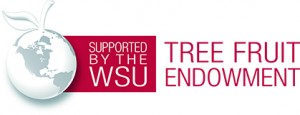Organic tree fruit producers often rely on tillage in the tree row to control weeds and disrupt rodent pest habitat. This inexpensive practice can potentially damage the trees’ trunk and roots, thereby reducing yield and fruit quality. In contrast, mulching under the trees to suppress weeds often improves tree performance but at a high initial installation cost, whereas flame weeding and organic-compliant herbicides can control weeds without disturbing the soil. These three systems of weed management in the tree row were compared in commercial, certified organic apple and pear orchards in Washington State, USA, to determine the effectiveness for weed control and the impacts on tree performance, soil organic matter, and economic return of each system when taking into account both the cost of the weed control itself and its impact on fruit yield and quality. Mulching produced a large net economic benefit relative to tillage, more so in the apple orchard that had sandier soil than in the pear orchard on a loam soil. Flame weeding was similar to tillage in cost, whereas organic herbicides proved extremely expensive and relatively ineffective. Tillage did not lead to a decline in soil organic matter over three seasons, nor did mulching increase it. Overall, mulching led to better tree performance and economic returns but was not a successful stand-alone weed control practice over 3 years. A combination of flaming and tillage and/or mulch may offer the best overall results.
